AIMS AND OBJECTIVES
The Commission on the Anthropology of Religion recognises the social, cultural, historical, economic, and political relevance that religion holds in human lives and their worldmaking. Religion is here understood to be a category of analysis connected to multiple arenas of human life and human relations to the environment and non-human world. From the beginning of the discipline of anthropology, religion has been a central theme around which many arenas of social life have been explored. The study of religion from an anthropological perspective continues to be debated and to foster new theoretical perspectives and methodological approaches. Anthropology of religion is also at the forefront of innovative ethnography, pushing the assumed boundaries between insider-outsider and researcher-subject dynamics, the visible-invisible, human-nonhuman, and the material-immaterial.
The aim of this Commission is to gather scholars studying Anthropology of Religion and related subjects, and to promote debates on theories, methods, ethnographic data and experiences from a changing world in which religion is enmeshed in many domains of social life. The Commission welcomes members whose interest and research intersects with religion in any way. We will discuss the relations between religion and more-than-human beings, disasters, ecology, diasporas, migration, youth, health, death, gender, politics, colonialism/postcolonialism, food, war, digital media, materiality, heritage, art, identity, the body, as well as lived experience and interreligious spaces, and other themes that emerge from conversation among the Commission’s members.
THE COMMISSION HISTORY
The IUAES Commission on the Anthropology of Religion (CoAoR) was formally accepted by vote of the Commission on Commissions on 8 February 2024 by co-chair Daniela Calvo (Graduate School of Human and Environmental Studies, Kyoto University, Kyoto, Japan) and previous co-chair Hanna H. Kim (Adelphi University, New York, USA). Tova Makhani-Belkin (School of Education, University of Galway, Galway, Scotland) became the Commission Secretary after election in June 2025, Reet Hiiemäe (Department of Folkloristic, Estonian Literary Museum, Tartu, Estonia) was elected as co-chair in September 2025, after Hanna H. Kimʼs resignation. The commission currently counts 63 members from various countries. The CoAoR wishes to warmly thank our first social media intern, Vishal Kamath, for his work since the start of the internship program until May 2025. We also welcome the new intern, doctoral student Daniel Stack.
The Commission’s activities included hosting membership Zoom CoAoR meetings; disseminating the Commission membersʼ publications on the Commission Facebook page; sharing events and news related to the Anthropology of Religions; working at a multi-commission Photo Essay Contest project “Portraying Religion and Health Photo Essay Award”; ensuring very strong participation by members for the World Anthropology Union Congresses in South Africa (November 2024) and Guatemala (November 2025); starting the Commission webinar series; favouring collaborations among the commission’s members for seminars and publications; collaborate with other commissions for joint projects and webinars.
HOW TO JOIN THE COMMISSION AND FOLLOW OUR ACTIVITIES
Interested in joining the CoAoR and meeting a global group of scholars committed to innovative fieldwork and publishing in anthropology of religion? You are warmly invited to write to Daniela Calvo (dnlclv7@gmail.com) and Reet Hiiemäe (reet.hiiemae@folklore.ee). Please follow the commission’s Facebook page (https://www.facebook.com/IUAES.religion) for news and events.
PORTRAYING RELIGION AND HEALTH PHOTO ESSAY AWARD
The “Portraying Religion and Health Photo Essay Award” is a collaborative initiative of the IUAES Commissions on the Anthropology of Religion, Visual Anthropology, Museums and Cultural Heritage, Medical Anthropology and Epidemiology, and the Anthropology of Pandemics. Organized in partnership with the World Anthropological Union (WAU) Congress 2025 and the CIRMA, this initiative is part of the hybrid congress taking place in Antigua, Guatemala, from 3-8 November 2025.
The award was meant as an opportunity to address, through visual exploration, the intersections between religion and health, and was open to young scholars.
The project will result in a Round Table and a Photo Exhibition at the upcoming World Anthropological Union (WAU) Congress 2025, the exhibition book (open access), and a 2026 calendar (open access).
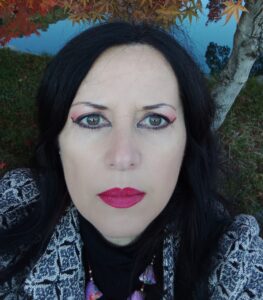
CO-CHAIR DANIELA CALVO, PhD
Daniela Calvo is a Host Researcher at the Graduate School of Human and Environmental Studies of Kyoto University. She holds a PhD in Social Sciences from the State University of Rio de Janeiro (UERJ) and a PhD in Mathematics from the University of Pisa. Her research revolves around Afro-Brazilian Religions in Brazil, Italy and Japan, with a focus on healing rituals, more-than-human relationships, affect, food and gender relations, sacred space, migration and transnational processes, memory, and the Covid-19 syndemic. She also published papers on witchcraft in Africa; Maria Lionza; Tarantism and contemporary revival.
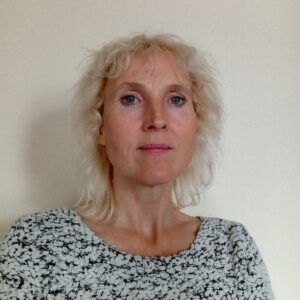
CO-CHAIR REET HIIEMÄE, PhD
Reet Hiiemäe is senior researcher of folklore and religion at the Department of Folkloristics, Estonian Literary Museum, Estonia. Working on the cross-section of religious studies, folkloristics and anthropology, she has written numerous academic and popular articles on folklore and religion as mental self-defence, analyzing the psychological aspects of vernacular beliefs, belief narratives and spiritual practices (such as protective rituals, women’s rituals, or vernacular responses to health crises in Estonian and other contexts).
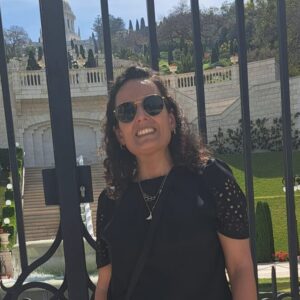
SECRETARY TOVA MAKHANI-BELKIN, PhD
Tova Makhani-Belkin, anthropologist of religion, is a postdoctoral fellow at the School of Education at the University of Galway. Her research focuses on the Bahá’í community in Ireland, with particular attention to religious conversion, national identity, and agency. She has conducted long-term ethnographic fieldwork in Ireland and published work on conversion narratives, dream ethnography, and theology and everyday life. Beyond academia, she is involved in applied social research, connecting anthropology with public engagement and program evaluation, and has published policy reports and peer-reviewed papers on educational programs, loneliness and disability, ethnic and intercultural relations in urban neighborhoods.



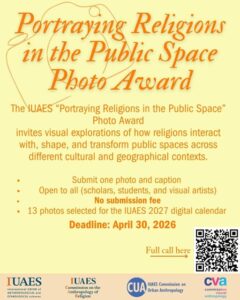
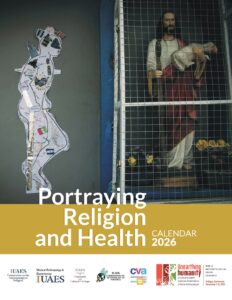 e would like to share the 2026 Calendar “Portraying Religion and Health” that was produced as part of the “Portraying Religion and Health Photo Essay Award,” a collaborative initiative of the IUAES Commissions on the Anthropology of Religion, Visual Anthropology, Museums and Cultural Heritage, Medical Anthropology and Epidemiology, and the Anthropology of Pandemics. Organized in partnership with the World Anthropological Union (WAU) Congress 2025, this initiative was part of the hybrid congress taking place in Antigua, Guatemala, from November 3 to 8, 2025.
e would like to share the 2026 Calendar “Portraying Religion and Health” that was produced as part of the “Portraying Religion and Health Photo Essay Award,” a collaborative initiative of the IUAES Commissions on the Anthropology of Religion, Visual Anthropology, Museums and Cultural Heritage, Medical Anthropology and Epidemiology, and the Anthropology of Pandemics. Organized in partnership with the World Anthropological Union (WAU) Congress 2025, this initiative was part of the hybrid congress taking place in Antigua, Guatemala, from November 3 to 8, 2025.